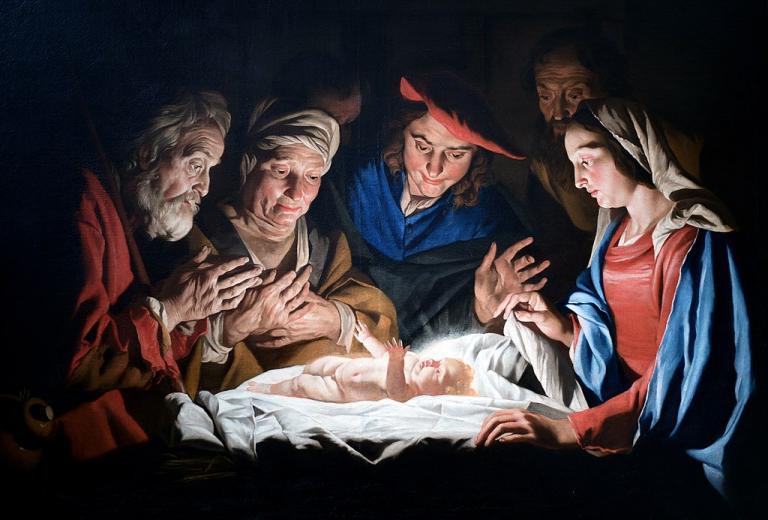Since it is still Christmas and will be until Epiphany on January 6, I want to commend to you a reflection on the theological meaning of Christmas by Anthony Costello entitled What Christmas Is Really About: Part 1 – The Theology of Christmas at the Patheos blog Theological Apologetics. (He goes on to write about the historicity of Christmas and the philosophy of Christmas.)
In the first installment, Costello quotes St. Athanasius’ On the Incarnation. (The edition I linked to, costing only 99 cents for rhe Kindle edition, includes an introduction by C. S. Lewis, reprinted later as “On the Reading of Old Books,” one of explanations of why it is so valuable to read the classics that I have ever encountered.) Athanasius writes,
But to treat this subject it is necessary to recall what has been previously said; in order that you may neither fail to know the cause of the bodily appearing of the Word of the Father, so high and so great, nor think it a consequence of His own nature that the Savior has worn a body; but that being incorporeal by nature, and Word from the beginning, He has yet of the loving-kindness and goodness of His own Father been manifested to us in a human body for our salvation.
Costello then unpacks this statement. He begins with a remarkably succinct and lucid explanation of the argument from contingency and its implications:
Nothing material existed before the universe. Nor is the material universe of particles, waves, energy and gravity itself eternal. And since particles, waves, energy and gravity are not eternal, neither is nature, nor any of nature’s particular bodies. These contingent realities were not “from the beginning,” in the same way the Word was “from the beginning.” The phrase “from the beginning” means, in this context, from eternity.
Even if there were an infinite number of universes, ours just being one of them, still that infinite number of material universes would require a non-material explanation or cause. Something would still be required that exists outside the panoply of worlds that either brings them into being or, minimally, eternally holds them in being. We know this from basic analysis: for matter cannot not only cause itself to exist, neither can it give rise to mind, morality, or reason (see Rasmussen, How Reason Can Lead To God, 2019). In the light of reason, then, the first point Athanasius makes about Christmas starts to become clear to us: God, the eternal and immaterial Creator became a material, finite creature.
And this first point just is the main point of Christmas. And so we can summarize the true meaning of Christmas this way: The eternal, immaterial God of the Universe became material in the world of His own making.
The second point, which you can read about for yourself, is that God did not become just any material object, such as a block of marble; rather, He became a human being.
Next, He did this out of His “loving-kindness and goodness.” Costello point out that many religions do not consider their deities to be particularly good or moral. But the Incarnation, as revealed in Scripture and as celebrated at Christmas, is an action of God’s love, thus defining His character.
Further, as Athanasius says, the second person of the Trinity became incarnate “for our salvation.” That, in turn, implies that we need saving. Why that is, and how this was accomplished–not simply by God’s Incarnation but by His atoning death and resurrection–constitute the “rest of the story” in Scripture.
But Christmas celebrates the heart of Christianity. Costello sums up the “true meaning of Christmas” in this way:
First, we know that the immaterial, eternal, good and loving Creator of the universe took on a human body. Second, we know God did this in order to save us. If we were just to isolate what the meaning of Christmas itself is, then this is it.
Illustration: “Adoration of the Shepherds” by Matthias Stom (ca. 1650), Public domain, via Wikimedia Commons














